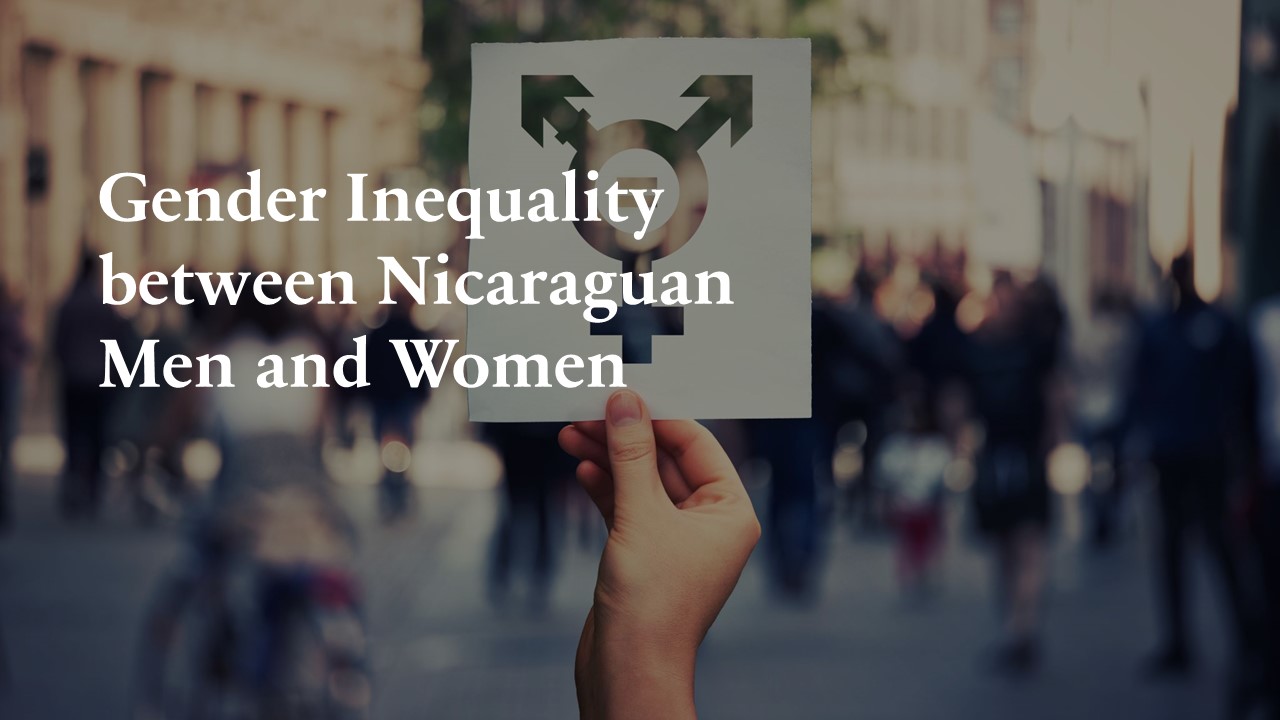Sex differences between men and women are commonly known for several biological characteristics. The long history of gender inequality has shaped social and psychological differences in many patriarchal societies. There is no doubt that these different sexual and gender roles are reflected in the cultural norms and practices of how men and women love and marry.
The gender inequality of patriarchal societies, however, has cultural specifics across all cultures of the world. Let us consider gender-specific love and relationships in Nicaragua, the Central American country located between the Pacific Ocean and the Caribbean Sea.
The Notions of “Machismo” and “Marianismo” in Nicaraguan Culture
In Nicaraguan culture, there is a social hierarchy in which men have a higher rank and have more freedom than women. The rights in a relationship are unequal, with culturally normative men’s dominance and women’s submissiveness. These gender roles and relationship inequalities are coined in the culturally specific terms of “machismo” and “marianismo”, which are associated with Latin American notions of masculinity and femininity (Karandashev, 2017; Lancaster, 1992, p. 92).
The sociocultural conditions of colonial and Catholic traditions have had a significant impact on Nicaragua, like many other Latin American nations in that cultural region. These historical origins have had a significant impact on the formation of gender-specific concepts like “machismo” and “marianismo.” They still certainly affect relations between men and women.
Nicaraguan patriarchy and masculine “machismo,” however, have certain specific characteristics.
Typical masculine behaviors are characterized by independence, risky actions, drinking, gambling, and womanizing. These are the social norms and practices that men are commonly expected to follow in relationships. The fact that men don’t follow these rules is a threat to their manliness.
Cultural Norms of Gender Inequality in Nicaraguan relationships
Machismo norms presumptively assume that wives should serve their husbands in marital relationships. On the other hand, their gender norms allow men to do whatever they want. They can drink and womanize. Women tend to forgive their male spouse’s behavior. Following their gender roles, they frequently justify their husbands’ behavior and infidelity. They say that these manly traits, like strong sexual desires, are part of “male nature.”
According to “marianismo” roles, women demonstrate their submissive and nurturing qualities. They fulfill their gender roles as “good women,” upholding the chastity norm. Community control, ‘social censorship’, ‘rumors’, and ‘gossip’ strengthen their behaviors (Hagene, 2010).
Sexual Inequality in Nicaraguan Marriages
On the one hand, according to gender norms, women are expected to be chaste, submissive, and follow their sexual fidelity. On the other hand, according to gender norms, men can conquer, dominate, and womanize. Such practices are culturally normal. Both men and women believe that men are sexual beings and women are emotional beings.
Both men and women can have extramarital affairs. However, only men in Nicaragua can publicly display these relationships. Sometimes, they even use such relationships to implicitly threaten their women. This way, they enforce them to accept their behavior as it is. For women, having such complicated relationships with their partners is physically and emotionally painful, but they have to put up with it and accept it (Hagene, 2010).
It is common in Nicaraguan society for men to be romancing multiple women at the same time. But only one of these women succeeds in establishing herself as the ‘woman of his house.’ (Montoya, 2002).
Nicaraguan Men and Women Have Complicated Monogamous Relationships
In marriage, Nicaraguan women are more likely to practice monogamy than their husbands. Women often need to practice serial monogamy when they have one husband after another. They still maintain their family household. These instances present a widespread cultural practice rather than individual cases.
In contrast, men frequently practice “polymonogamy.” Formal marriage does not prevent husbands from having several partners. Men often have several women at the same time. Husbands may have two wives at the same time and have children with other women while still living with the first. This case also represents a widespread cultural practice (Hagene, 2008, p.32).
It appears that the practices of intergender relationships in Nicaragua are still following the cultural norms of gender inequality. The Nicaraguans continue to be resistant to modern cultural norms of gender equality, which are evident in many other societies.
What about Nicaraguan love? How does it look?
